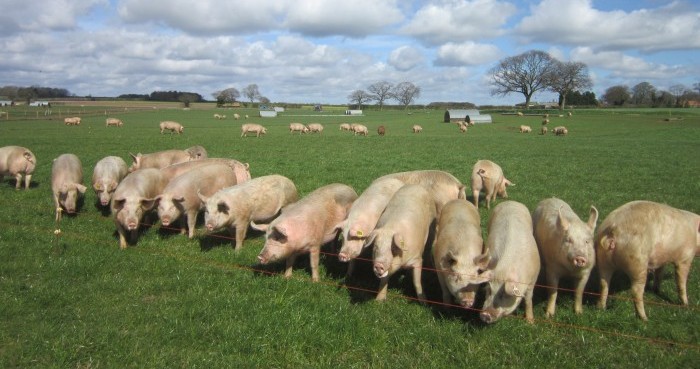Defra has told industry stakeholders it will not be consulting on controversial plans to introduce compulsory animal welfare labelling of certain food products.
The Department had been planning to launch a formal consultation in the spring, but this failed to materialise, after the plans came in for some heavy criticism fro the industry. This week, officials informed industry stakeholders that the Department does not believe it is the right time to launch the consultation.
A Defra spokesperson said: “We are proud to have some of the highest animal welfare standards in the world.
“We will continue to work with farmers and supermarkets to improve food information for consumers and support the production of healthier, higher welfare animals through our Animal Health and Welfare Pathway.”
Under the plans, new regulations would have required products, initially pork, poultry and eggs, to be categorised in different tiers, linked to method of production.
Defra had claimed the move would give consumers a clearer indication of how pork and other products are produced and help drive improvements in welfare standards. It said the proposals sought to simplify and clarify existing welfare labels’.
However, in a letter to Defra Ministers earlier this year, a coalition of industry organisations – including the NFU, NPA, British Meat Processors Association, the Food and Drink Federation, Dairy UK and the British Poultry Council – argued that the proposals would add significant additional costs to the food chain without delivering further clarity for consumers.
“Mandatory method of production labelling will not deliver continual improvement of farm animal health, as method of production is not the key determinant of animal welfare,” the letter stated. “The science is clear that attention to detail and professional management of our flocks and herds is a greater determinant of animal welfare, but this is much more difficult to translate into a clear and useful consumer labelling framework.”
“Labelling should be voluntary and follow compulsory rules when certain terms are used to ensure accuracy and consistency.”
Responding in April, Farming Minister Mark Spencer said the initial call for evidence on welfare labelling reforms in 2021, ‘pointed to the fact that consumers do face barriers to purchasing products produced to UK welfare standards or higher, including through lack of transparency in the absence of a simple standardised labelling approach, and affordability where higher-welfare products are sold at a premium’.
He suggested the new approach could help farmers ‘fully capture the value of products which meet or exceed UK welfare regulations’. But he assured industry stakeholders their concerns had been fully considered in developing the proposals.
Defra indicated that, while it has dropped plans to consult now on welfare labelling reforms, it intends to continue working with industry to explore how it can ‘harness the market to improve food information for consumers and raise animal welfare standards’. This will include looking at how welfare labelling could align with wider labelling proposals, such as eco-labelling.
NPA reaction
The NPA’s Pig Industry Group (PIG) did not hold back with its concerns over the various flaws in the plans when they were presented by Defra officials earlier this year.
NPA chief executive Lizzie Wilson welcomed the decision not to issue the consultation. “We as an organisation argued strongly behind the scenes that compulsory welfare labelling would be a blunt tool that adds costs across the chain, while doing nothing to educate consumers about real welfare on farms,” she said.
“Our PIG made it very clear to Defra that you cannot equate welfare with method of production and that the proposed system would likely confuse, rather than inform.
“We welcome the fact that Defra has listened to us and others throughout the supply chain on this and will continue to work with them to ensure any future moves to increase transparency in the pork supply chain are proportionate and effective.”




